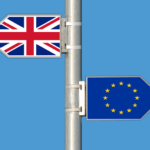The European Council and the European Parliament reached a preliminary political agreement on the anti-coercion instrument today.
The Swedish Presidency agreed on this legislation on the protection of the Union and its member states from economic pressure by third nations on behalf of the European Union Council. (Anti-Coercion Instrument – ACI). This mechanism intends to dissuade third nations from using economic coercion against the EU and its member states through trade or investment sanctions.
By deciding what constitutes economic coercion, the Council will play an important role in the decision-making process. The European Commission will be granted implementing powers in decisions on the EU’s response measures, while member states will be given enhanced engagement in these choices.
Anti-coercion measures
Among the measures that could be applied to the third country as a response to economic coercion are the imposition of trade restrictions, for example, in the form of increased customs duties, import or export licences, or restrictions in the field of services or public procurement.
The anti-coercion instrument is designed to de-escalate and induce discontinuation of coercive measures through dialogue. Any countermeasures taken by the EU would be applied only as a last resort.

EU-US Trade and Technology Council addresses common challenges and responds to global crises |
Next steps
Once the regulation is officially adopted by both institutions, it will enter into force 20 days after its publication in the Official Journal of the EU.
Background
The European Commission proposed this legislation on 8 December 2021 at the request of the Council and the European Parliament.
The European Parliament’s Committee on International Trade (INTA) adopted amendments to the proposal on 10 October 2022, and the plenary confirmed the Parliament’s negotiating mandate on 19 October 2022 and requested that negotiations begin ‘immediately’.
The Council agreed its negotiating position on 16 November 2022.







Leave a Reply